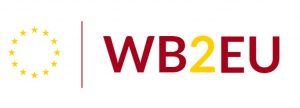Policy Recommendations
- Strengthening the administration of judiciary should be given more attention and be considered as a crucial part of rule of law reforms, as justice needs to be delivered fairly and on time.
- Reforming the disciplinary system for judges and prosecutors will derive as a mean for sustainability of the system.
- Vetting is a very sensitive process that will need a strong commitment from the government to push it forward.
Abstract
Starting just after the war and for more than 20 years now, Kosovo has had international community as the strongest provider of support to strengthen the rule of law. Even though many reforms were undertaken, the country still faces persistent problems. Rule of law in Kosovo, being on top of the state reforms priority list like the European Reform Agenda as well as those requested by the European Union (EU), has not stopped Kosovo’s judiciary system to continue being fragile and inefficient. Moreover, this has also not stopped the delay in delivering justice, piling of the backlog of cases at courts, and corruption as a mean to mediate resolution of cases. As stated in many international reports, especially in the Kosovo Country Reports delivered by the European Commission over years, the current state of rule of law in Kosovo affects the country’s democratic and economic development, the approximation with the EU and overall consolidation of the state. Thus, robust actions that are targeted to amend Kosovo’s fragile judiciary system are needed immediately.
The Policy Brief is published in the framework of the WB2EU project. The project aims at the establishment of a network of renowned think-tanks, do-tanks, universities, higher education institutes and policy centres from the Western Balkans, neighbouring countries and EU member states that will be most decisive for the enlargement process and Europeanisation of the region in the upcoming years. The WB2EU project is co-funded by the European Commission under its Erasmus+ Jean Monnet programme.





